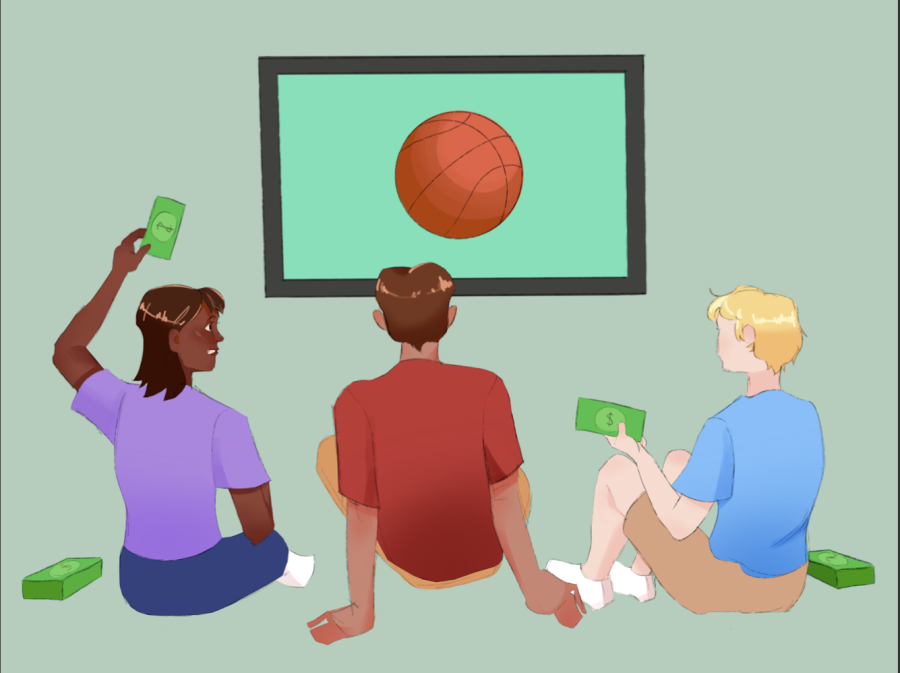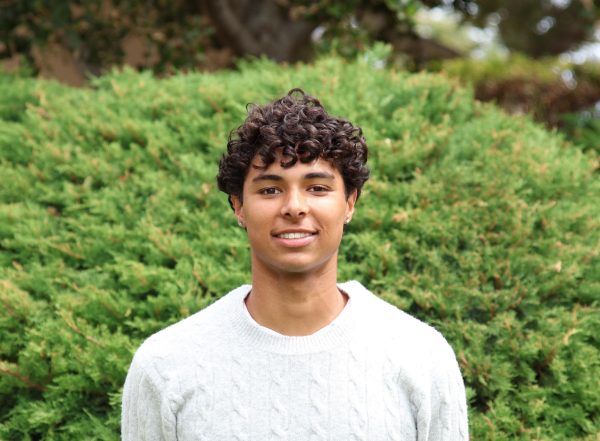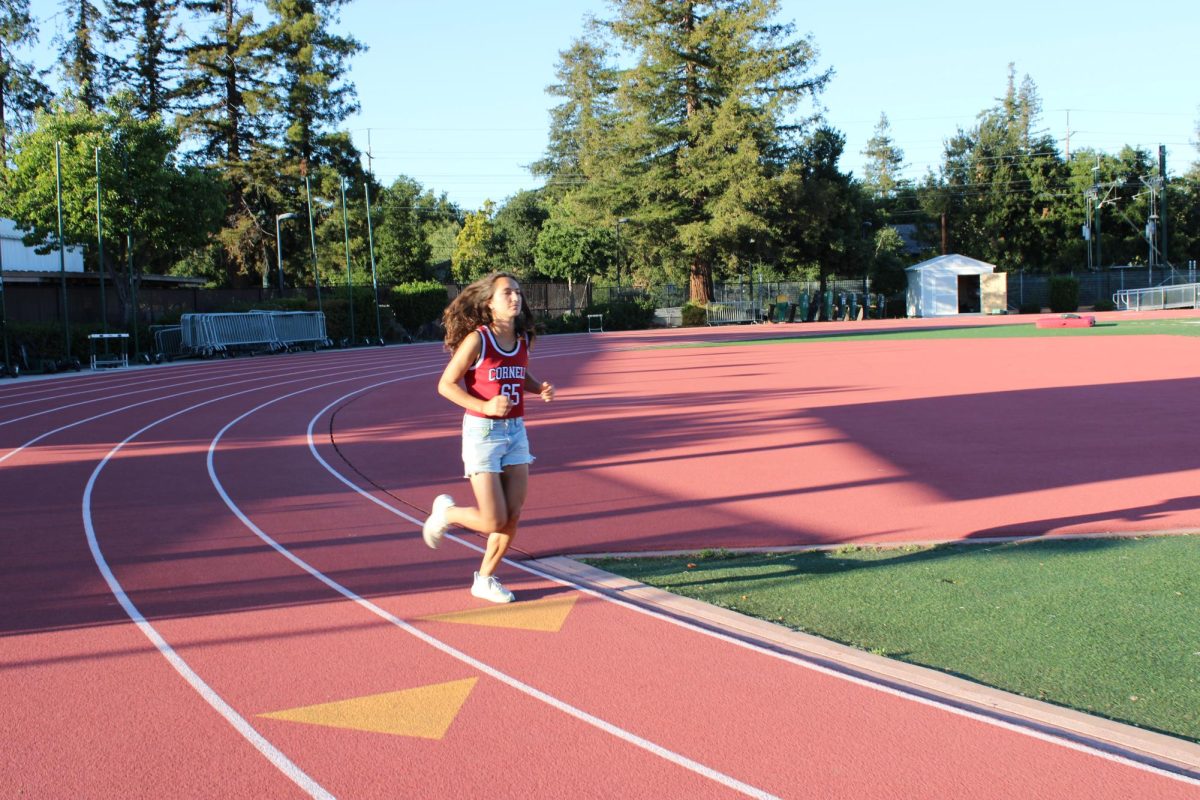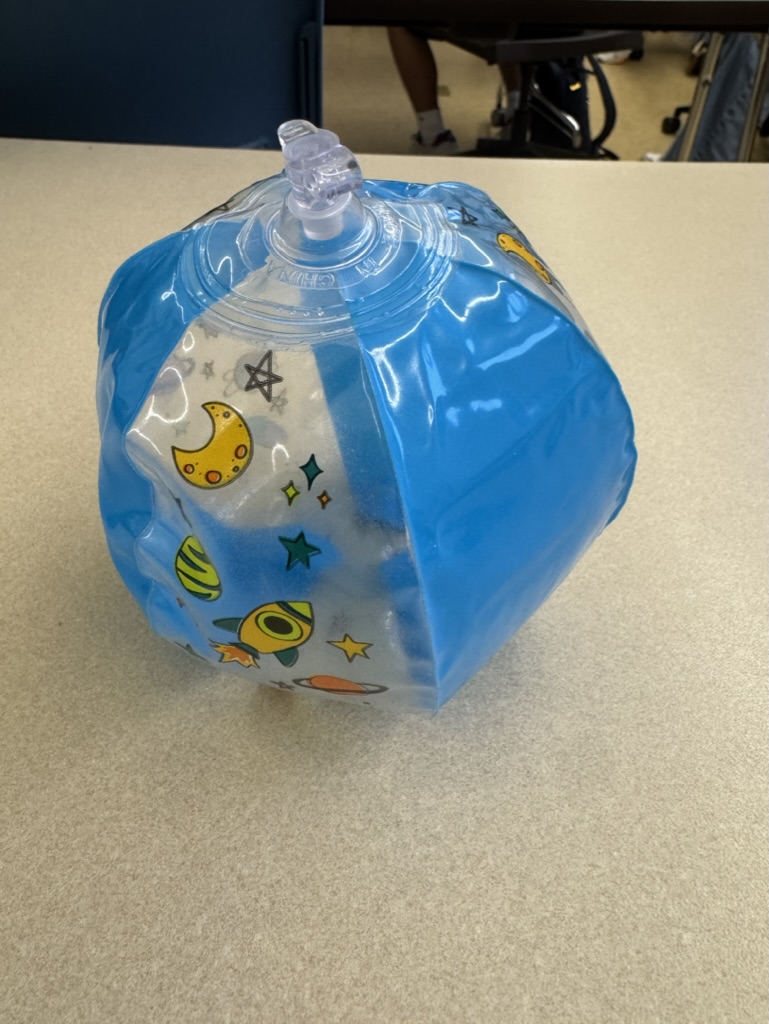Students weigh risks, rewards of betting on March Madness
May 8, 2023
Sophomore Will Hagan stares at his TV, on the edge of his seat, as he watches Florida Atlantic University play the Memphis Tigers in the first round of March Madness. With only a few minutes left, the game is close, and with every basket, tensions rise. But Memphis falls one point short. With this first-round upset, Hagan’s bracket tanks, preventing him from winning $50 and highly coveted bragging rights among his friends.
March Madness fans submit roughly 70 million brackets every year, according to the American Gaming Association, and while in 2018 just over 1% of Americans could bet legally on sports, that figure has jumped to 56% today.
Paly students’ betting habits do not reflect national numbers, however, as just over two-thirds of students think betting is healthy when little is at stake and around two-thirds have never bet money on sports, according to a Schoology survey of 70 students.
While federal law prohibits minors from betting on sports and California law prohibits most types of sports betting, a sophomore who agreed to be interviewed only if he stayed anonymous due to the illegality of his activity, who uses Fliff, an online sportsbook application, said this was easily bypassable online.
“I just said I was over 18 when I signed up and it didn’t ask me to verify it,” he said.
He also said he feels confident betting virtually.
“You start off with $1 to bet with if you don’t want to spend your own money,” he said. “I use my own money (because) I have enough self-control to bet reasonably.”
Sophomore Henry Harding who also bets using Fliff, said potentially winning money motivates him to bet.
“I bet on March Madness women’s tennis, Japanese baseball … anything that is a competition at any time of the day,” Harding said. “I bet to make as much money as possible.”
However, other students bet with different motivations. Senior Grace Corrigan, who participated in a March Madness bracket with her friends, said she enjoys the jocular nature of the competition.
“I bet with my friends because I thought it would be fun, and none of us took it very seriously,” Corrigan said. “Whoever lost the brackets had to get this gross sauce, Willow’s #7 sauce, poured on them.”
Senior Hillary Studdert said the fun of participating in March Madness brackets comes from her and her friend’s competitiveness despite their inexperience.
“We took it pretty seriously for not really following NCAA basketball, and it’s a fun group activity,” Studdert said.
While the excitement of betting is widespread, some are worried about the effects it could have on teens. Stanford basketball head coach, former college basketball player of the year candidate and Paly parent Jerod Haase said youth gambling concerns him.
“The habit of gambling is something that, generally, should be avoided,” Haase said. “It’s not a great thing, especially when it’s illegal, based on age or location or industry. But especially when young men are in high school or younger, getting involved in betting or gambling in any way can be harmful and should be discouraged.”
However, Haase said that in the right circumstances, when money is not a factor, brackets can be harmless.
“Do I think filling out a bracket with your buddies is a harmful activity? No. Do I think that putting down a penny and having the ability to get two pennies in a bet with your friends is the scariest thing in the world? No, but it’s all a slippery slope, and it gets to this gray area where it can get big pretty quick,” Haase said. “Once you do put something down, you can get something in return. That changes the whole dynamic.”
Though Haase said he acknowledges that betting on March Madness is widespread, he said he and the Stanford men’s basketball team he coaches, who are not permitted by the NCAA to wager any money on any collegiate sport, do not embrace the culture or let the pressure affect their performance.
“I’ve done a pretty good job of ignoring it, and it doesn’t really impact my thought process with anything,” Haase said. “For me and what I’ve seen from my team, we are not impacted in terms of performance or pressure, but I would put an asterisk by that because other teams can be impacted, and, in the future, it’s going to be something that will have a stronger impact.”
However, Haase said pressure from social media can cause unhealthy gambling and harm players. Schools now deal with hundreds of occurrences of abuse directed toward college athletes as a result of missed parlays and bets according to Mark Potter, head of delivery for Epic Risk Management.
While online betting has spurred a recent influx of gambling, California’s Prop. 27, a proposal that centered around legalizing online gambling by allocating revenue from gambling to solving homelessness, did not pass.
Physical Education teacher David Duran voted in favor of the proposition, but he said he still sees the danger of teen betting.
“Everyone should understand (that) you can only wager as much money as you can afford to lose,” Duran said. “Anybody 16, 17 or 18 is not always aware of that.”
And Haase said the addition of online betting presents a dangerous trade-off, risking entertainment for possible addiction.
“When you go online, the accessibility increases, and if you’re considering gambling and betting an entertainment source, the accessibility is a positive,” Haase said. “But the reality is that it comes with the consequence that more people are going to become addicted to gambling.”
Haase said this risk will only continue to grow as gambling becomes legalized.
“The amount of everything from marketing money to actual money being bet on games is astronomical already and will just continue to grow as more and more states make laws that allow it,” Haase said. “I’m extremely aware that the future (of betting) is going to change quickly.









